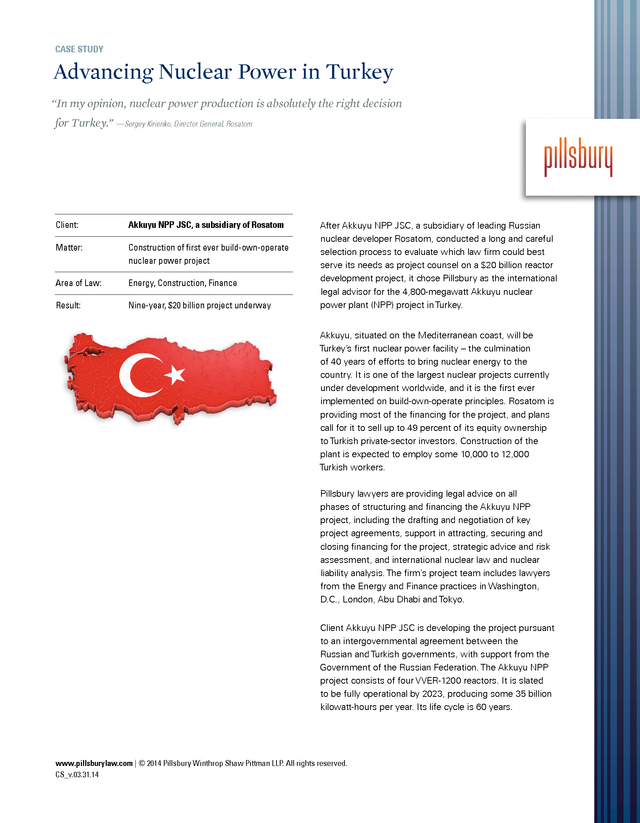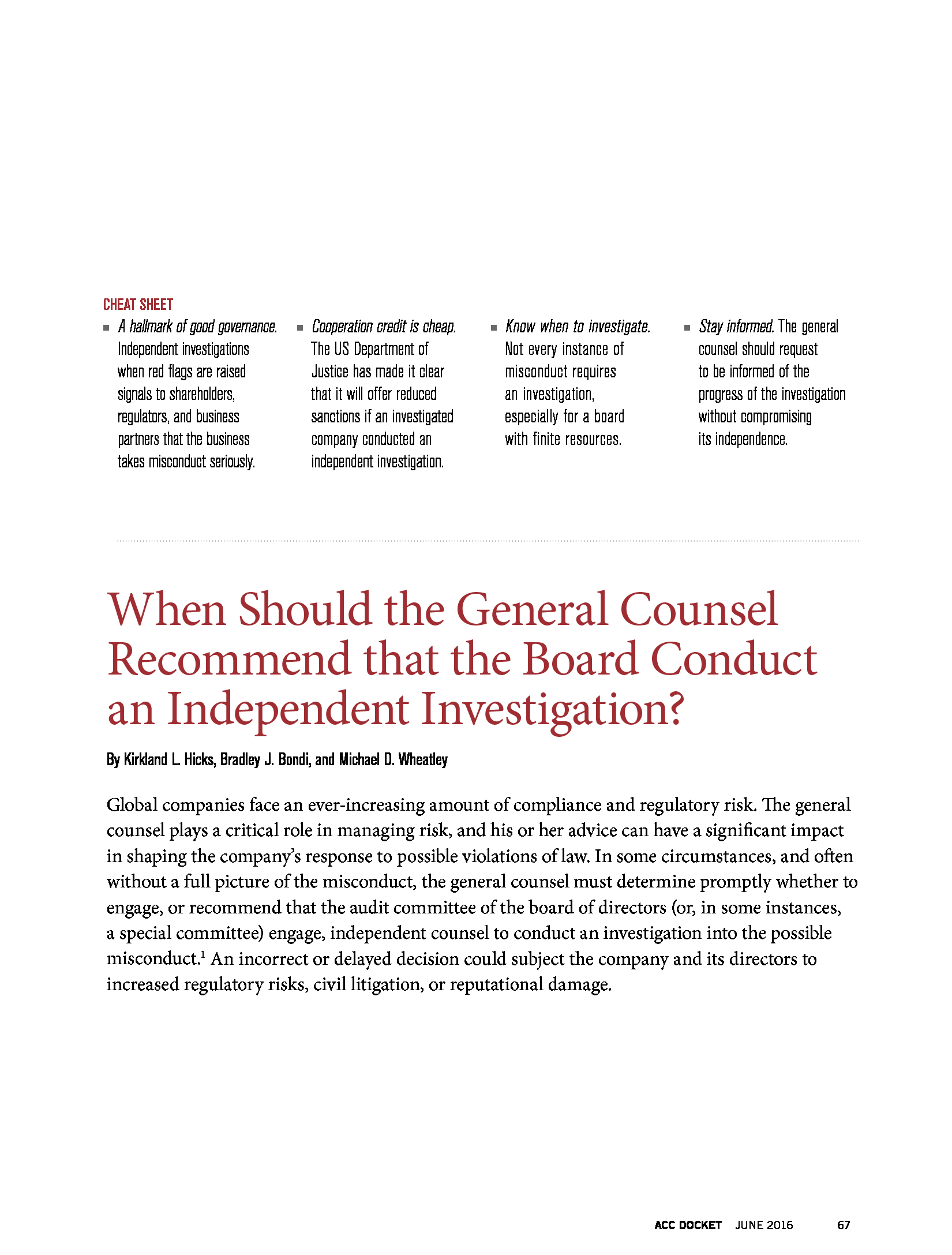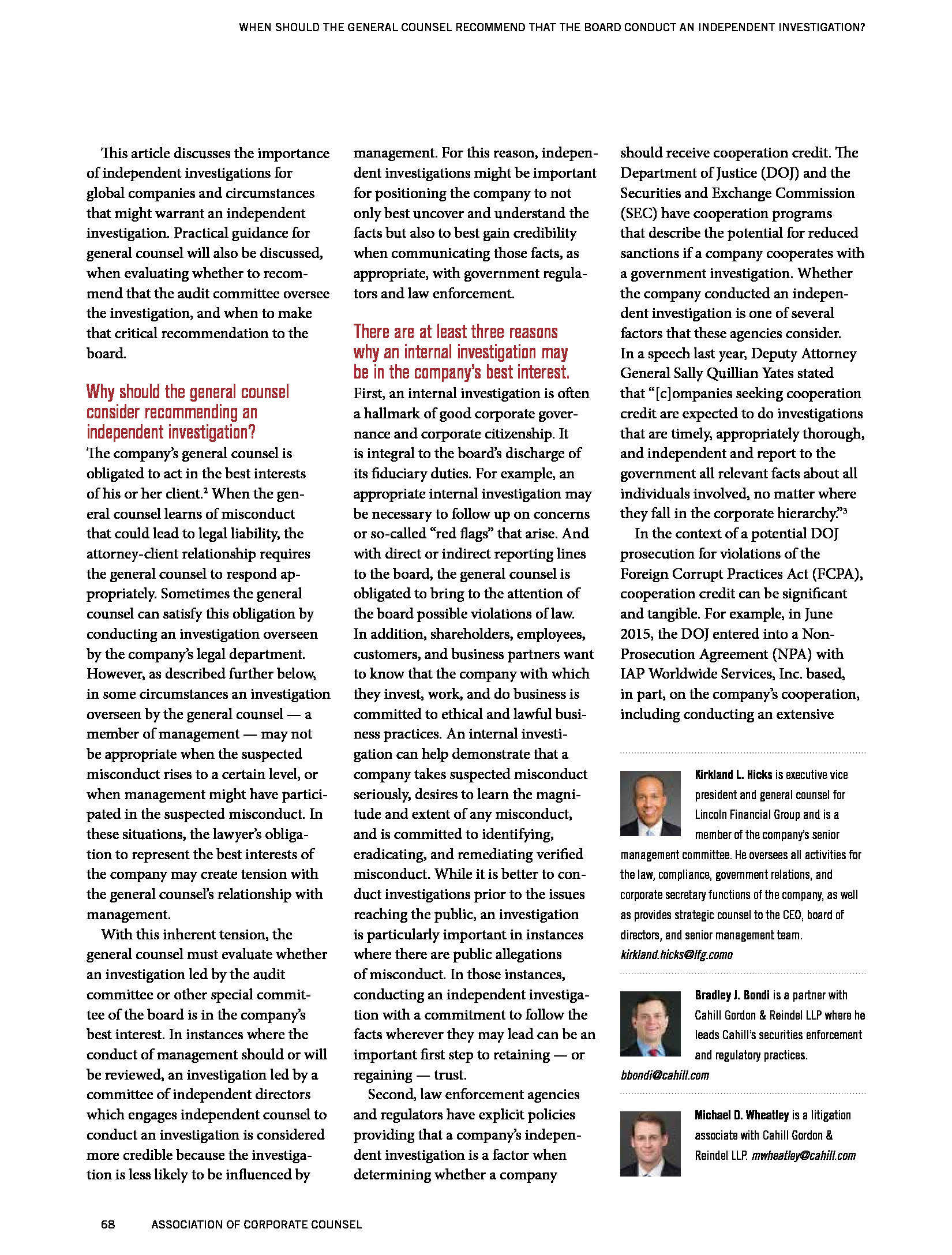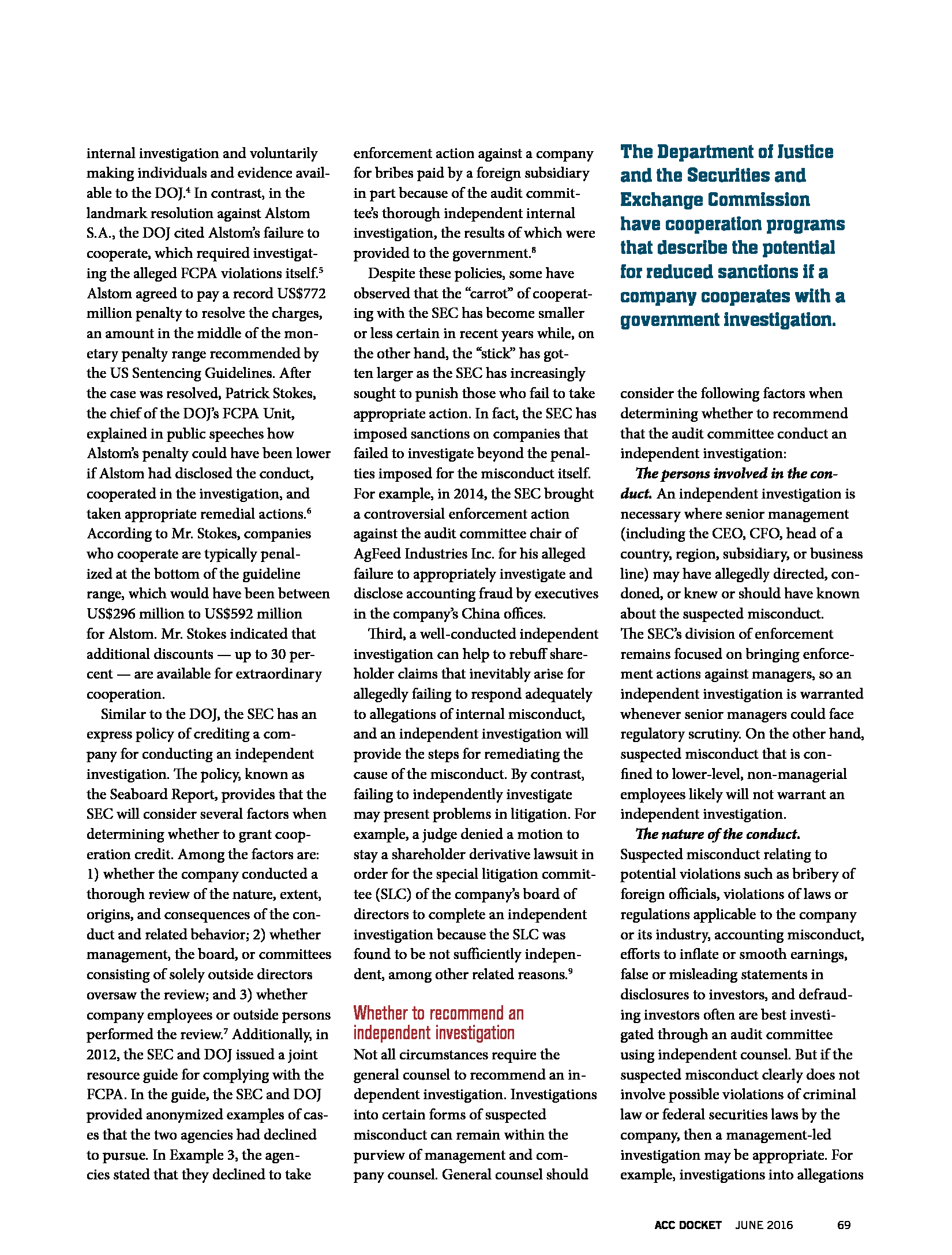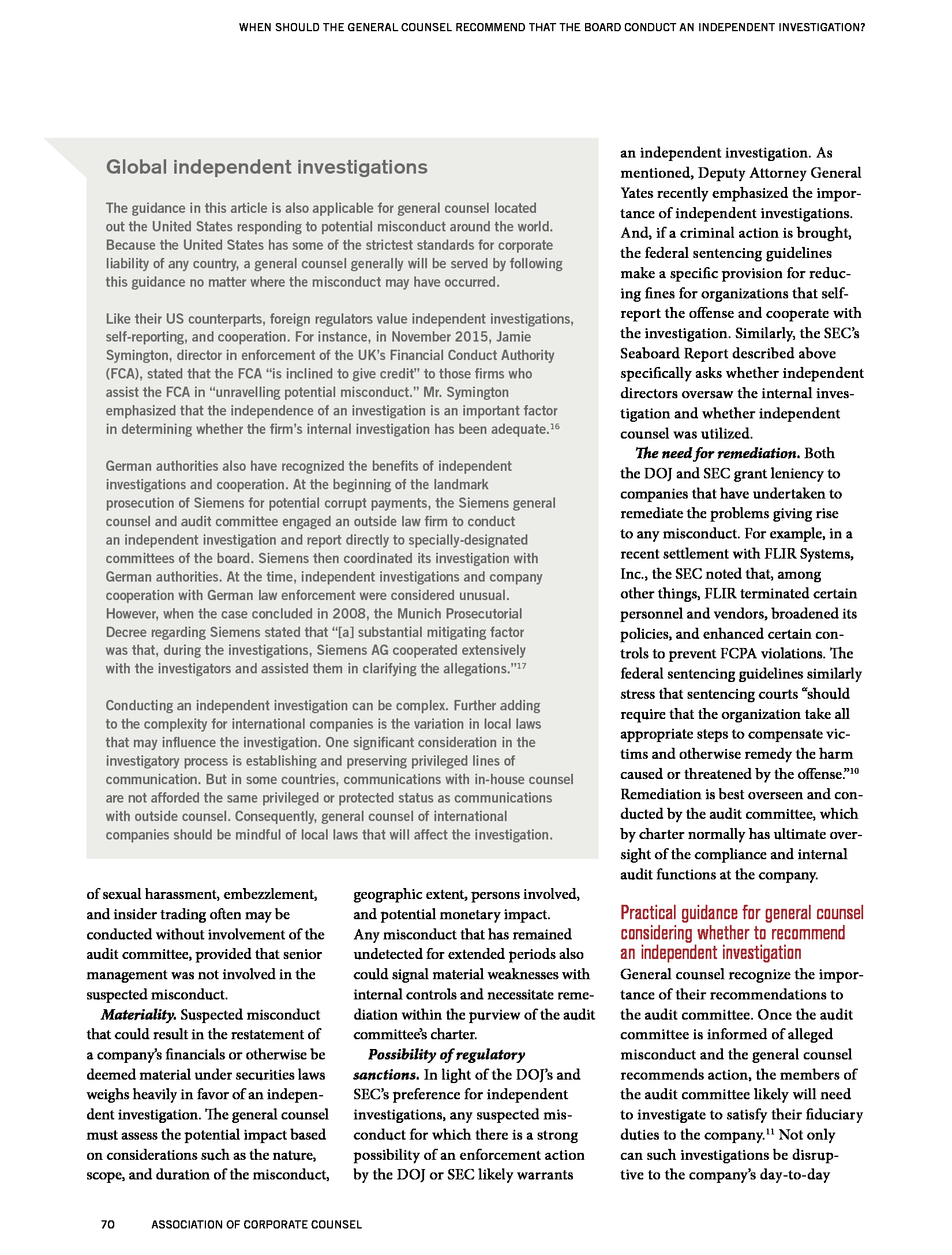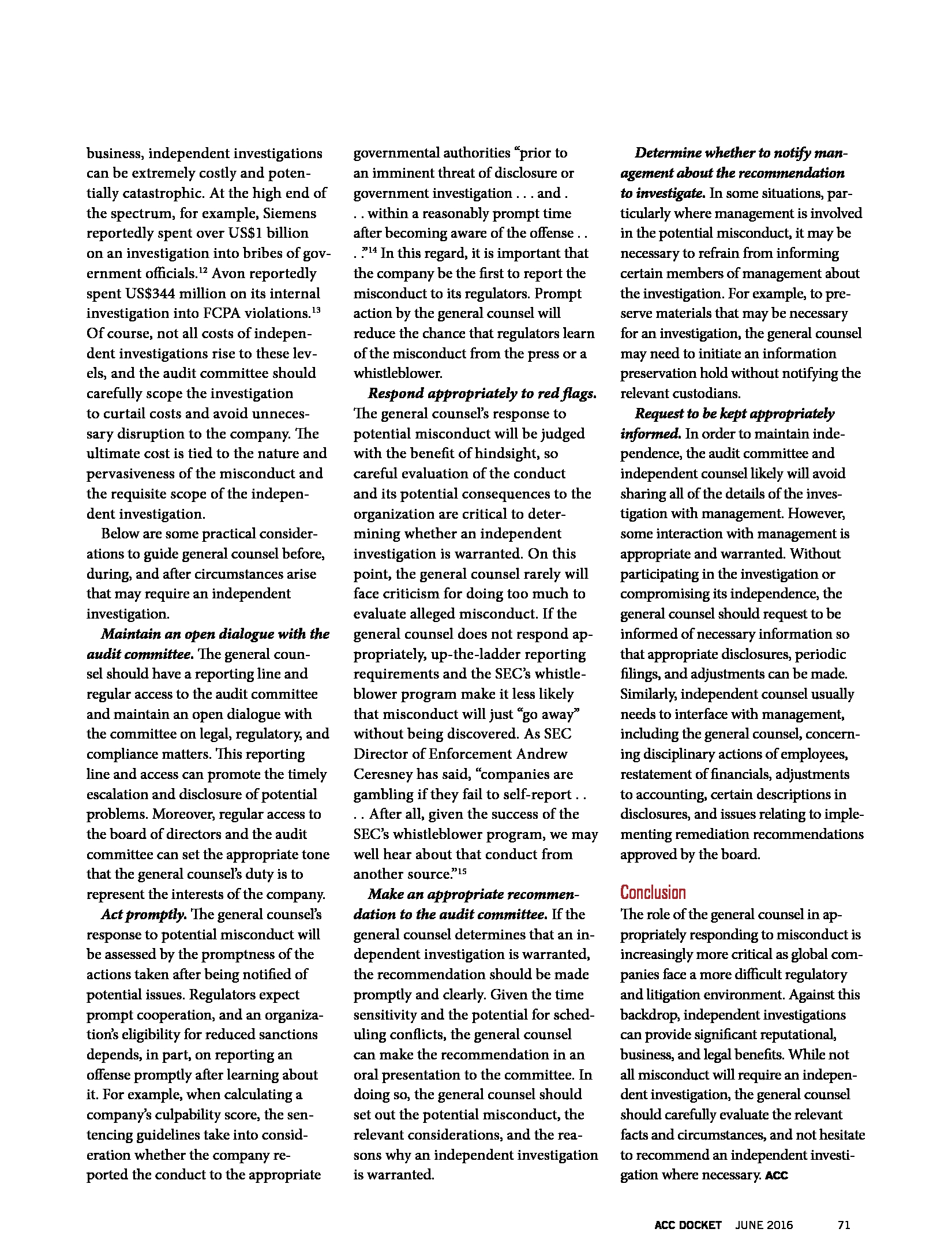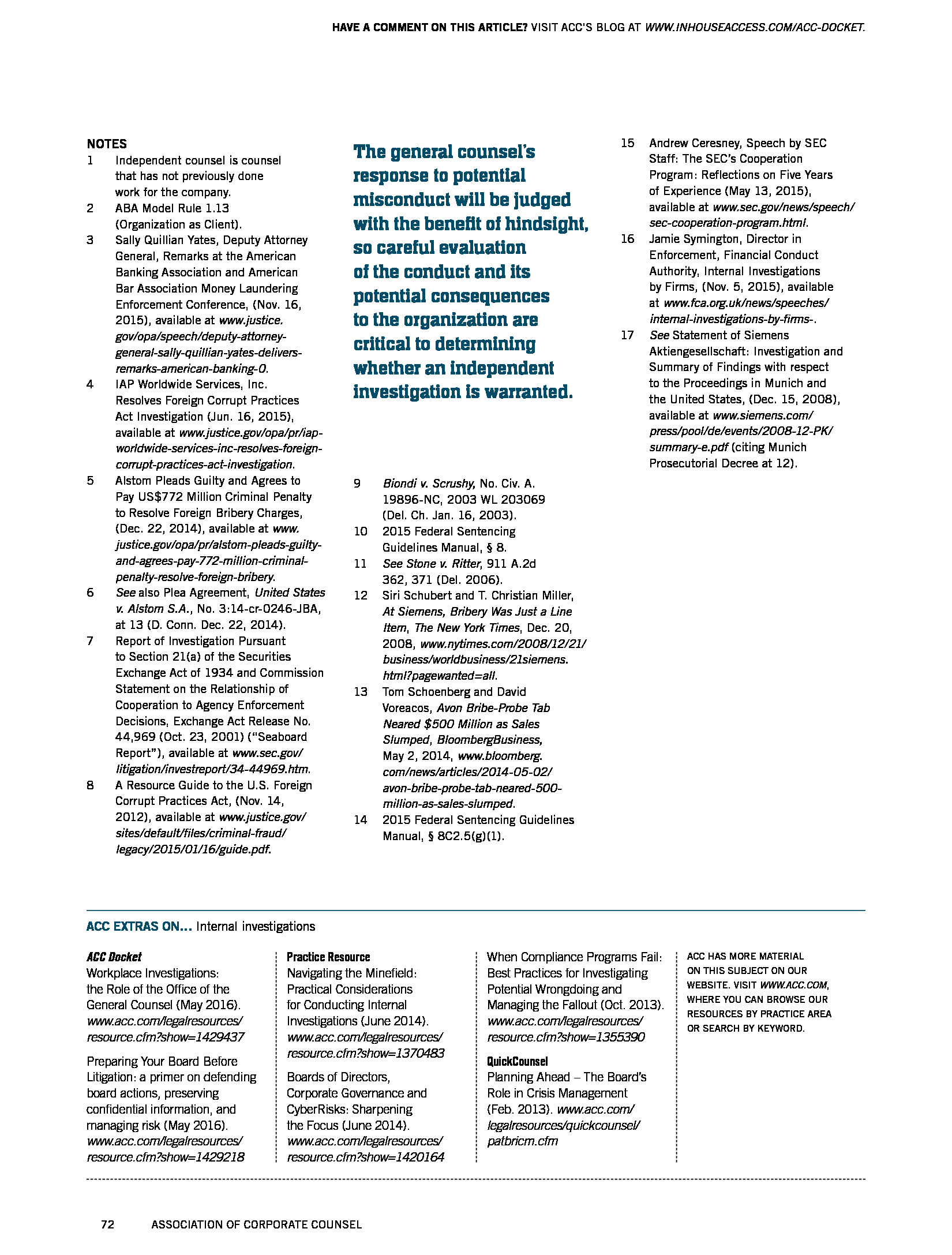Description
CASE STUDY
Advancing Nuclear Power in Turkey
“In my opinion, nuclear power production is absolutely the right decision
for Turkey.” —Sergey Kirienko, Director General, Rosatom
Client:
Akkuyu NPP JSC, a subsidiary of Rosatom
Matter:
Construction of first ever build-own-operate
nuclear power project
Area of Law:
Energy, Construction, Finance
Result:
Nine-year, $20 billion project underway
After Akkuyu NPP JSC, a subsidiary of leading Russian
nuclear developer Rosatom, conducted a long and careful
selection process to evaluate which law firm could best
serve its needs as project counsel on a $20 billion reactor
development project, it chose Pillsbury as the international
legal advisor for the 4,800-megawatt Akkuyu nuclear
power plant (NPP) project in Turkey.
Akkuyu, situated on the Mediterranean coast, will be
Turkey’s first nuclear power facility – the culmination
of 40 years of efforts to bring nuclear energy to the
country. It is one of the largest nuclear projects currently
under development worldwide, and it is the first ever
implemented on build-own-operate principles. Rosatom is
providing most of the financing for the project, and plans
call for it to sell up to 49 percent of its equity ownership
to Turkish private-sector investors. Construction of the
plant is expected to employ some 10,000 to 12,000
Turkish workers.
Pillsbury lawyers are providing legal advice on all
phases of structuring and financing the Akkuyu NPP
project, including the drafting and negotiation of key
project agreements, support in attracting, securing and
closing financing for the project, strategic advice and risk
assessment, and international nuclear law and nuclear
liability analysis.
The firm’s project team includes lawyers from the Energy and Finance practices in Washington, D.C., London, Abu Dhabi and Tokyo. Client Akkuyu NPP JSC is developing the project pursuant to an intergovernmental agreement between the Russian and Turkish governments, with support from the Government of the Russian Federation. The Akkuyu NPP project consists of four VVER-1200 reactors. It is slated to be fully operational by 2023, producing some 35 billion kilowatt-hours per year.
Its life cycle is 60 years. www.pillsburylaw.com | © 2014 Pillsbury Winthrop Shaw Pittman LLP. All rights reserved. CS_v.03.31.14 .
The firm’s project team includes lawyers from the Energy and Finance practices in Washington, D.C., London, Abu Dhabi and Tokyo. Client Akkuyu NPP JSC is developing the project pursuant to an intergovernmental agreement between the Russian and Turkish governments, with support from the Government of the Russian Federation. The Akkuyu NPP project consists of four VVER-1200 reactors. It is slated to be fully operational by 2023, producing some 35 billion kilowatt-hours per year.
Its life cycle is 60 years. www.pillsburylaw.com | © 2014 Pillsbury Winthrop Shaw Pittman LLP. All rights reserved. CS_v.03.31.14 .



